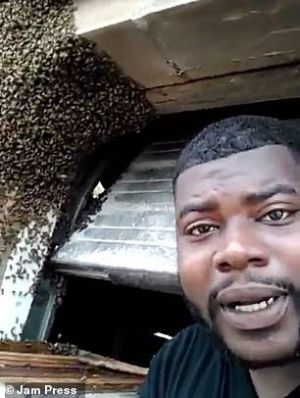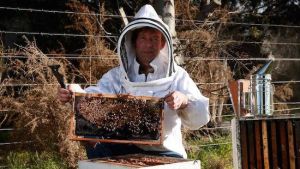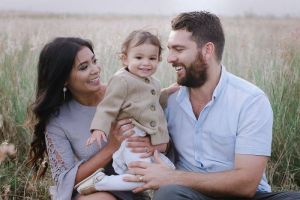
(ABC Rural: Jessica Schremmer)
Small crop farmers Louise and George Wilson never imagined becoming beekeepers, but thanks to YouTube they've got all the skills they need.
Mr Wilson said he did not know anything about bees 12 months ago, but found videos on beekeeping so interesting that he spent hours and hours on YouTube learning all about it.
"It is just interesting and the way they look after their own hives," he said.

(ABC Rural: Jessica Schremmer)
"I had to learn how to make queens and how to keep small hive beetles away from the hives.
"There were a few mistakes but I fixed them up and got out of trouble and I think we've got it reasonably well now."

(ABC Rural: Jessica Schremmer)
The couple moved to Yeppoon in Central Queensland 11 years ago and started their own fruit and vegetable farming business in the coastal region, selling their produce at local farmers' markets and at their farmgate.
Ms Wilson said becoming a beekeeper was not on her books either, but she loved learning something new and wanted to create a sustainable lifestyle.
"We really knew nothing about them except seeing them in our flowering trees around our place," Ms Wilson said.
"Everything here involves good bugs —and bees are good bugs. They do great things for the environment.
"They cross pollinate, and they provide honey, which is great for us as a natural product, not to mention the healing qualities that pure honey has."

(ABC Rural: Jessica Schremmer)
Essential skills needed
Mr Wilson admitted back in the day he was scared of bees and would not go anywhere near them.
"The biggest thing is to be calm," he said.

(ABC Rural: Jessica Schremmer)
Ms Wilson said there were plenty of hiccups but she believed that was what happened when learning new skills.
"You have to learn by your mistakes and have a lot of patience," she said.
"For example, you can't just have one hive, you need more than one to keep an eye on the health of each hive.
"But most importantly you need patience, especially when learning to make more beehives and splitting them because it is not an overnight thing to do."
She said it was difficult getting her laptop back off her husband while he was learning new skills, but he now even knew how to catch a swarm without the fear of doing something wrong.

(ABC Rural: Jessica Schremmer)
First harvest and future expansion plans
After keeping three honey-filled frames from already established hives last year the couple is expecting their first own honey harvest this summer and will start selling it at their local farmers' markets.
"We are excited to supply our customers with local, clean, untreated honey, without insecticides," Mr Wilson said.
Ms Wilson said they had future expansion plans and their goal was to develop 40 bee hives.
"We might sell bees as well because they are in great demand," she said.
"It depends on how good we get at splitting our hives, but it would be a good way to keep the bee population going in the world.
Ms Wilson said beekeeping was a great addition to their small crop farming business as their decision not to use insecticides kept their property healthy.





